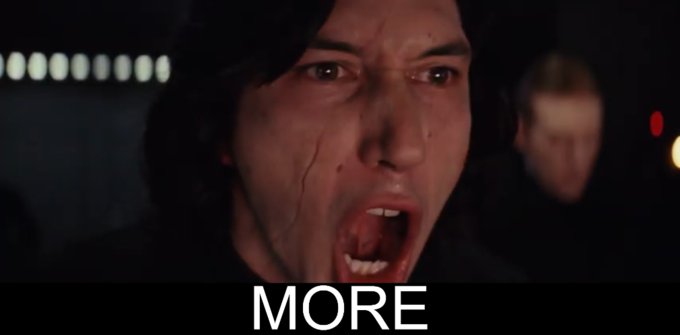Hello, folks! First of all, a heads up about a new anthology coming soon called Rising Tides that includes a story by me – a pirate story called “Lady Misfortune”, set in the early 1600s on the coast of Newfoundland! I had lots of fun with this one, and I know the publisher will appreciate your support for the kickstarter if you can.
And some good news to share! The Tapestry of Time is on the Locus Recommended Reading List, which also forms the ballot for the Locus Awards, for which anyone can vote! It’s also on the longlist for the British Science Fiction Association awards, for which members of the BSFA can vote. It was really wonderful to see this book on those lists.
I thought I'd do a little update on the novel revisions today, with some thoughts on finding one's own way while taking feedback on board, and dealing with critical voices as a writer.
I got my editor’s (wonderful) feedback on the draft of Mercutio a few weeks ago. It's not a difficult revision, but it's been slow going: partly because I've had a lot of freelance and teaching work on my plate, partly because I'm a bit burnt out from doing too much in the fall, partly because we've had some time-consuming household stuff to deal with such as the aftermath of a truck veering into our lane and hitting our car (we’re all OK, but dealing with the insurance company and other red tape has been extremely stressful), and partly because the horrors on the news are occupying more of my mental space than makes for optimal productivity. But I'm getting there!
The main job with this draft is to extend my hand a little bit more to readers. This is something I get asked about, sometimes, so I thought it might be worth exploring a little. People will ask me questions like “Do you have to do what your editor says?” or “Do you compromise your vision to try to be more commercial?” And the short answer is no. But! That doesn’t mean I just send my (wise and patient!) editor a snippy note and insist upon my genius. It’s more complicated than that.
For example, one thing I am doing with this draft is laying down a bit more emotional groundwork, for certain subplots, to make sure certain moments hit for the reader the way I want them to hit. This is always part of revision for me, but I still find it a little bit tricky to spot where that's actually an issue, because I’m so prone to second-guessing myself. My agent and editor know me and my work well, and they are both good at telling me where I need More. (I always need More somewhere, often very literally. My books almost always get longer with each draft.) Often, everything I want the reader to catch is already there in the book, but it just needs to be underlined or teased out enough that the reader feels it. I have gone through this process with all of my books.

Another part of extending the hand has to do with research and background knowledge. There are some pretty obscure references in Mercutio that will (I hope) make my fellow Shakespeare and Dante enthusiasts cackle and say "I see what you did there," but I also want to strengthen the connections visible to people who haven't read Romeo and Juliet or The Divine Comedy in years, or who never have. Yes, I'm writing in part for those who already love what I love, but I'm also thrilled when one of my books is the reason someone decides to read or watch something for the first time. (One of the things I love about my Assassin’s Creed books is that more than one person told me they were the first books they’d read all the way through in years. Cannot put a price on that feeling.)
Drawing a few more easily spotted connections doesn't eliminate all the in-jokes and easter eggs that are already there for my fellow nerds. It's not a compromise or a blow to my artistic vision – or at least, if I do it in ways that bring me joy and enrich the book, it doesn't have to be. It’s about treating every layer of the book with equal care. I can invite the reader in to this experience with me layer by layer (like Virgil leading Dante, come to think of it) while also, still, being my own deeply odd writer self. At least, that’s my hope.

I’ve thought a lot about what it means to respect the reader’s intelligence, and it doesn’t mean “assume the reader did a PhD thesis on Dante” although sometimes, after two years of research, I have to remind myself that is not, in fact, what it means. For me at my best, it means giving the reader a chance to make connections — the ones I’m making and ones I don’t even glimpse — and to bring their reasoning, curiosity and experience to the book. It does not mean condescending or watering down, which I think is the failure mode that lies on the other end of the spectrum from my usual failure mode of assuming the reader will come into the work with certain specific knowledge and make a lot of narrative leaps on their own.
Another reason I love my agent and editor is that they appreciate my oddities, and they don't try to turn me into someone I'm not, although they will call out the places where I haven't done the work, or where I'm just not realizing that not everyone has read the exact same books I have. I tend to forget what's common knowledge and what isn't, when I'm knee deep in book research.
It can be difficult to find that space, though, where one is engaging with readers without trying to pour oneself into a mould for them.
Here’s the context that’s in my head while I revise: I have had a few messages from readers over the years complaining that my books are "too hard." I get tagged into reviews complaining that my plots aren't unfolding to readers' expectations. And part of my answer to that is, well, not every book is for every reader. I do believe in writing the work of my heart, even if it isn't exactly easy – most of my favourite books are not easy.
The question I ask myself a lot while revising is: is this particular knot of difficulty serving my goals, or is it a pointless, perhaps unintended, barrier I could remove without harm to the book? Am I resisting satisfying the reader's instincts out of stubbornness or intellectual laziness, because I don't want to do the work to wrangle an unruly bit of plot? Or am I resisting it because I actually have a reason for writing it in an unusual way?
I never have a blanket answer to this, but I do at least try to do the work and push against my own resistance – and 99% of the time, I figure out a way to address a question or concern (my editor's or my own, when I put my editor hat on to assess my own work) in a way that makes me happier and feels closer to my vision, not farther from it. And sometimes, I try, only to realize that I really do want to dig in my heels on something. In those cases, the trying is still worthwhile, because it forces me to articulate to myself why I'm doing something a bit weird or challenging, and then I understand the whole picture better, which helps with revisions elsewhere in the draft.
We authors often talk about how important it is to get nice feedback from readers because it keeps up morale, but there's another reason too!
I just had a lovely note out of the blue from a reader I don't know, thanking me for a specific plot choice I made in The Valkyrie. I've not-managed-to-avoid some reviews that called that very choice a flaw, treating it as a mistake or lack of skill on my part, because it's unusual. So hearing from even one reader who loved it helps me keep that kind of choice in perspective. Now I don't have "readers hate when I do this" in my head when I try something similar, but "some readers hate when I do this, and at least one loves it, so pffft, I’ll do what works for me" which makes all the difference when I’m revising something new and trying to shut out the critical voices. (It's worth remembering, too, that criticism tends to weigh heavier in our minds.)
This is an especially hard struggle for me, I suspect, because I spent about 15 years trying and failing to get published at all. That really stripped away my confidence, as I deeply internalized the need to get better. And even now, there's always a voice in my head saying "well, maybe you'd sell enough copies to make a decent living if you were just better at it." The drive to get better, for the most part, serves me well as an artist. But the way it's connected to my income and my ability to care for my family can very easily twist it into "Just fit the mould! Do whatever's most popular on BookTok! Do the things that Goodreads wants you to do! Be easier to swallow! Be consumable!"
So yeah, there’s pressure to be more commercial. I have a kid to feed. And maybe that’s partly what I mean when I talk about extending the hand to the reader. But fundamentally, even if I could turn myself into the safest possible commercial bet, I don’t want to spend my brief precious life chasing that. Yes, I would like to make a more stable living writing these books that I love, but I can't control that by trying to be a writer I'm just not.
This is where I am with my revision, setting the table in a way that will (I hope) allow as many readers to come and dine as possible, but it's my own table, where I unapologetically serve what I feel I can offer that nobody else can. And the rest will be out of my hands.
All of my best to you, and thanks for reading and sticking with the newsletter. In these times, it's a real lifeline for me to be able to talk about my work and connect with people.
You just read issue #29 of Kate Heartfield's Newsletter. You can also browse the full archives of this newsletter.
